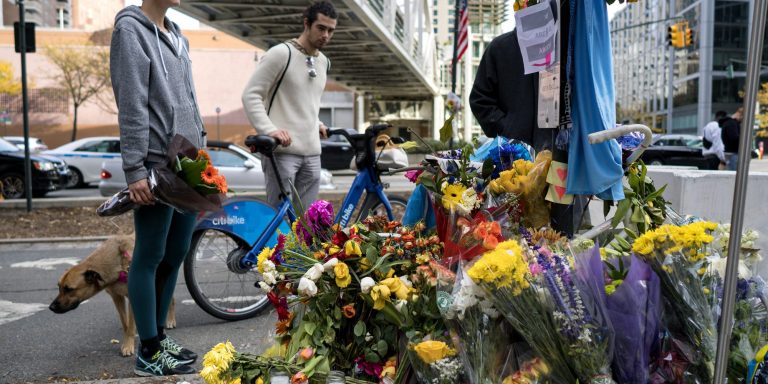INTELBRIEF
August 3, 2018
IntelBrief: What Happens After the Next Terror Attack?

- The U.S. is in the midst of a division not seen in generations, made worse by the absence of a faith in facts.
- Terrorism, like other crimes, has always been politicized in the U.S. and societal distrust and discrimination often follow individual attacks.
- The country is woefully unprepared with respect to basic infrastructure, medical facilities, and systems that can effectively deliver to its citizens basic services in times of emergency.
- The U.S. lacks the resiliency to handle the social aftermath of a large-scale terrorist attack.
.
The U.S. has become an internally divided and fragile superpower, with resulting social, political, and economic consequences. In particular, the country is unprepared to respond to any large-scale terrorist attack or natural disaster with common purpose. This lack of resiliency at the national level is the inevitable result of deliberate societal division driven by politicians, talking heads, and a society eager to believe the most outlandish lies about each other. U.S. society has always had fringe elements that believed in conspiracy theories. Having become even more polarized, the U.S. body politic is even less prepared to respond with a strong sense of national unity.
More than mere rhetoric is setting up the U.S. for catastrophe after the next mass-casualty event. The country is woefully unprepared with respect to basic infrastructure, medical facilities, and systems that can effectively deliver to its citizens basic services in times of emergency. The U.S. government response to the hurricane damage in Puerto Rico—and the socio-political divisions it revealed and exacerbated—is an example of what the rest of the U.S. can expect if things do not change. The national pastime and number one priority seems to be arguing and the assigning of blame—not taking responsibility to address serious shortcomings. This results in a feedback loop that does not prioritize taking actionable solutions in preparedness, resulting in more ‘proof’ that the system doesn’t work.
It is likely that there will be a significant terrorist attack in the U.S. in the foreseeable future, as well as a significant natural disaster; some parts of the U.S., such as in the West, are already dealing with permanent natural disasters, including wildfires and persistent drought. In the event of a significant act of terror against the U.S., the scale of the attack will be dwarfed by what is likely to be a counterproductive political response. These issues are matters of national ‘insecurity.’
In the aftermath of the next attack, the push to change fundamental aspects of the ‘U.S. experiment’ will be real and have lasting effect. The immediate response to whatever the attack or disaster is will be problematic, but hopefully adequate in terms of first aid and law enforcement responses. The country needs to work together to ensure that the recovery does not focus on the assigning of blame, but on building the needed resilience to move ahead, unified, through challenge and crisis.
.
For tailored research and analysis, please contact: info@thesoufancenter.org
[video width="960" height="540" mp4="https://thesoufancenter.org/wp-content/uploads/2018/08/IB-0803.mp4" poster="https://thesoufancenter.org/wp-content/uploads/2018/08/AP_17308751546898-1-e1533298526104.jpg"][/video]